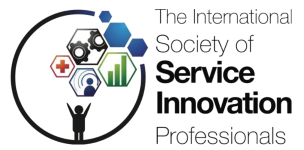Christoph Breidbach: Paul, thank you so much for your time today and congratulations on launching the California Center for Service Science.
Paul Maglio: Thank you.
Christoph Breidbach: Can you please tell us a bit about your background?
Paul Maglio: Sure. I have been involved in service research for a while. More than 10 years ago, we started the Almaden Services Research group at the IBM Almaden Research Center in San Jose. This was the first service research group at IBM. We started with 9 researchers in 2002, and now there are probably 300 researchers at IBM around the world doing service research. It should be no surprise that service innovation has become important to IBM, as its service business has grown to dominate its revenue over the last 10 years. My personal interest in service has been to understand the ways people, technologies, and organizations interact to create value, and in how to improve those value-creating interactions. For instance, colleagues and I spent years studying work practices in IT outsourcing to try to improve them, which was of course a perfect thing to do at IBM. I have also been quite interested in discovering general principles of service, aiming to create a solid foundation for this new discipline we called “service science”. About a year and a half ago, I joined the faculty at the University of California, Merced, as a Professor of Technology Management, which is gives me a great opportunity to focus on service science from both education and research perspectives.
Christoph Breidbach: So what is the idea behind the California Center for Service Science?
Paul Maglio: When I came to UC Merced, I found that I didn’t really have any other faculty to work with on my campus in the area of service. But I soon realized I had quite a number of colleagues across the UC system who were doing service-related work. And though, of course, anyone might collaborate with anyone else, we really didn’t have any community or structure that would bring us together on common research and educational goals related to service. That was the initial idea of the California Center for Service Science. And then it was a small step to say, why limit it to University of California? We started to invite folks from other institutions to join in. It really took off once we started sending notes to people and asking if they were interested. Most folks were. We wound up building a big-tent approach to service science here. So the way we’re thinking about it now, the California Center for Service Science has the mission to be a thought leader in service science, fostering cross-disciplinary research and education in all topics related to service with particular application to industries and topics relevant to California.
Christoph Breidbach: Is the service landscape in California unique?
Paul Maglio: Well, no, not really. The service sector in California currently accounts for more than 80 percent of the jobs and GDP, just about the same as the US overall. And the vast majority of new jobs added during 2012 were service-related, in areas like education, healthcare, and financial services. California is something like the 6th largest economy in the world, and just like other large economies, it has shifted over time from manufacturing to service. As the University of California, charged with educating the next generation of leaders for the state and the nation, I think we have to face this reality and focus at least some attention on the kinds of jobs, kinds of activities, and kinds of contexts our graduates will find themselves in – not someday, but the day they graduate. The simple fact of the matter is that the service sector remains understudied and the service workforce remains undereducated in California and most everywhere else.
Christoph Breidbach: How is the center addressing these needs?
Paul Maglio: With some small funding from the University of California’s Office of Research and from UC Merced, we were able to establish the California Center for Service Science as a distributed, cross-campus center for both research and education in all areas related to service. We launched the Center at the first Service Science Summit at the Rady School of Management UC San Diego on September 13th, with more than 40 attendees from five different UC campuses, other California universities, including several CSUs, and representatives from industry, government, and ISSIP. We had great conversations about how to tailor educational programs and how to focus basic and applied research. Based on this, we’re now developing plans to move the Center forward. So stay tuned.
Christoph Breidbach: Can ISSIP members be involved in the center?
Paul Maglio: Of course. We are very interested in talking to anyone from industry and academia interested in service. Just get in touch. And check out our web site – http://ccss.ucmerced.edu – and we’ll try to keep it updated as we go along.
Christoph Breidbach: Paul, thank you again for your time.
Paul Maglio: Thank you.
